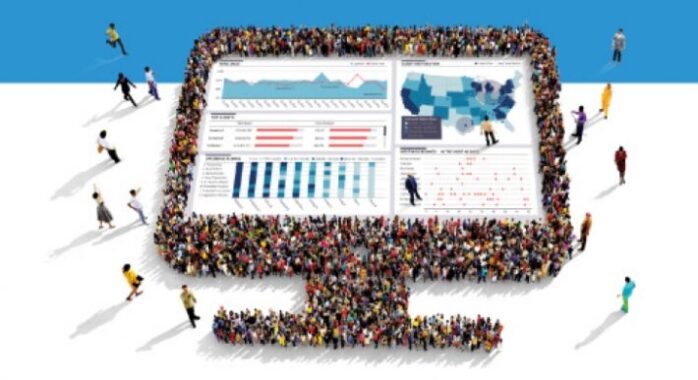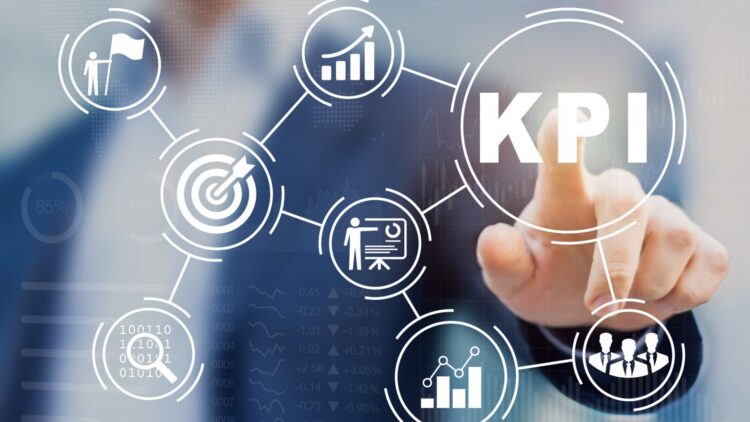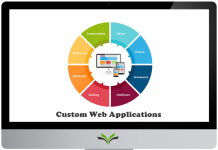
There’s no doubt that data is all around us, and companies that don’t take advantage of its full potential will be left behind. That said, business intelligence dashboards have become a prime solution for companies to visualize their data and extract actionable insights to boost their performance. Data experts at datapine say, that an interactive dashboard not only provides a visual overview of all your most important key performance indicators, but also serves as a user-friendly tool to keep everyone in your organization connected with data, enhancing the decision-making process, and helping you find improvement opportunities.
There are several dashboard software offerings in the market, each of them provides distinctive features that can help you track your business growth and increase efficiency. But how do you choose the right solution for your business needs? Here we provide you with the 10 essential dashboard software features you should look for before investing in one.

1. AI Features
Regarding Gartner, Artificial intelligence (AI) technology is one of the popular trends in the data analysis field, and it’s used in dashboards as a solution to automate processes that will make the analysis more efficient. For example, intelligent AI alerts use neural networks and pattern recognition to notify you as soon as you reach a goal or a business anomaly occurs. Like this, you don’t need to be constantly checking your data, leaving more time to perform other tasks.
2. Icon, images, and text
A dashboard software should give you design flexibility. Being able to add text, images, and icons to your dashboards helps you provide context to your data and make it understandable at a glance. For instance, you can use a green thumbs-up or a red thumbs-down icon to indicate if a KPI is performing well or not.
3. Multiple charts
When building your dashboards, you will be dealing with a lot of KPIs. While a bar chart or a line chart are the most common visualizations, they are not useful to display all kinds of metrics. That said, the dashboard software you choose should provide you with multiple chart types to tell your data story in the most efficient way possible.

4. Custom fields
Custom fields give users the flexibility to clean and manipulate data in order to perform advanced analysis. They will enable you to generate individual calculated fields as well as combine several dimensions into a merged field. Like this, you will be able to generate formulas for any analysis scenario.
5. Accessibility
The ability to access your data 24/7 is another essential feature of a dashboard software. Ideally, a cloud-based dashboard software should allow users to view their data from any device with an internet connection, be it desktop, tablet, or mobile.
6. Filters
Making the analysis process as smooth as possible is the basis of a successful dashboard software. Filtering options enable you to perform your entire analysis on one screen. Some common dashboard filters are based on time and geography. Time filters allow you to filter your charts based on a certain period, whereas geographical filters let you filter your dashboard based on a certain area.

7. Forecasting
Another one of the most relevant trends in the data analysis industry, the predictive analytics feature studies your current and historical data to identify patterns and trends that can be used to forecast your future performance. This helps you plan strategies ahead and perform a much more informed decision-making process.
8. User role management
Dashboards contain sensitive information that you don’t always want to share with everyone. The user role management feature enables you to set pre-defined roles in which users will be able to interact with the dashboard. The most common roles include administrator, viewer, or editing.
9. Sharing options
Sharing capabilities is a critical feature of a dashboard software as data analysis is a collaborative process. This feature gives you the possibility to share your dashboards via manual export in several formats, or via a live URL that can be password protected for extra safety.

10. Interactivity
Interactive dashboard features provide users with the ability to view their data from multiple angles something that is not achievable with static PowerPoint presentations or Excel sheets. Some common interactive features include drill throughs, drilldowns, chart zoom, among others.
Advantages Of Using Interactive Dashboards
When you get access to a dashboard with all the aforementioned features, your data analysis process will be set for success. Among all of these features, some of the main benefits your business can endure from using powerful dashboards include:
- Access to real-time data: Modern dashboard software automatically updates your data to provide you with fresh business insights as soon as they are available. Having access to real-time data not only allows for a more informed and fast analysis process but also cuts the manual work making it less time-consuming.
- Data-driven decision-making: Making business decisions based on human intuition will simply not make the cut. Professional dashboards enable you to know your business on a deeper level by providing you with factual information. For instance, you can understand your customer’s behaviors to provide a targeted service that will skyrocket your revenue.
- A complete KPI overview: As mentioned, dashboards serve as a centralized view of your most important performance indicators. Modern solutions allow you to connect any type of data source which can then be visualized together in an interactive dashboard. Like this, you can perform cross-analysis and dig deeper into your information.
- Enhanced business efficiency: Interactive dashboards are intuitive and easy to generate, making them accessible for everyone. This paired with the fact that they enable you to automate most of the analysis process will lead your business to optimize several processes that will increase overall efficiency. At the same time, you will be saving resources in hiring trained analysts to deal with your data.

These are only a few of the most essential features and benefits of implementing dashboard software for your data analysis process. Giving every relevant stakeholder access to data in an interactive and intuitive way will open a world of possibilities that will lead your business to success.











